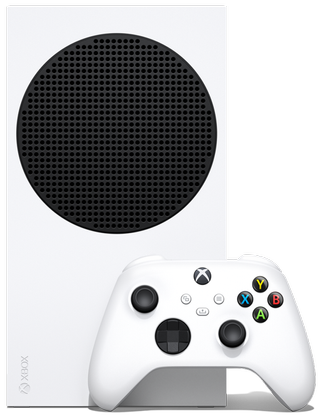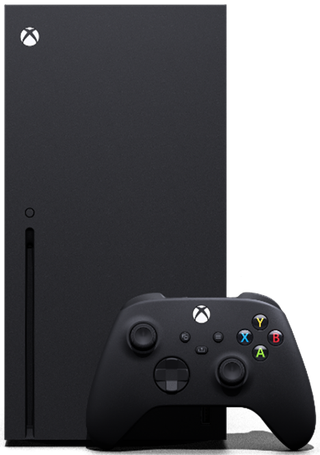Should you buy an Xbox One X in 2025?
Hmm. No.
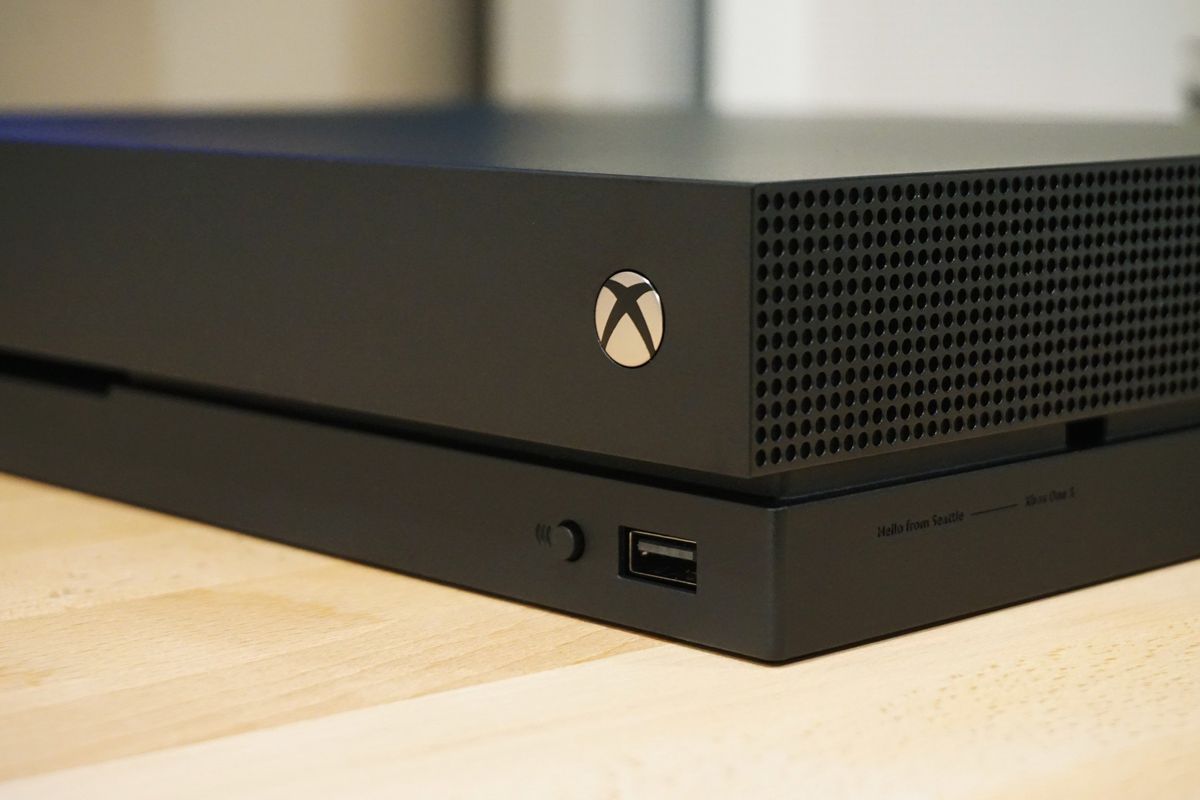
Should you buy an Xbox One X?
Why you probably shouldn't buy an Xbox One X in 2022
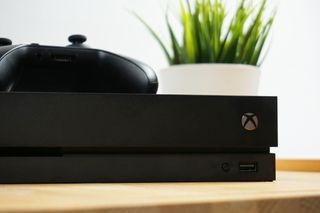
The answer to this is surprisingly complex, and I go into more detail in my Xbox One X vs. Xbox Series S article over here, but that is ultimately the reason you shouldn't buy an Xbox One X in 2022: The Xbox Series S is better overall, for a lower price.
The Xbox One X boasts more teraflops (and thus, more raw graphics processing power) on paper. The Xbox One X was designed for the earliest generation of 4K television sets, and as such, outputs 4K resolution across a large range of titles. 4K UHD gives you a crisper image, with more finer details. On a 1080p game, that sniper off in the distance that looks like a blurry mass of pixels would appear more defined in 4K, potentially making them easier to spot, as a basic example. Of course, you need an appropriate 4K TV for your Xbox to get the most out of the Xbox One X. If you don't have one already, that could significantly add to the cost of entry.
Presumably, you'd be looking to buy an Xbox One X second-hand, since Microsoft itself is no longer manufacturing them. The current-gen Xbox Series X|S consoles are the entry point to the Xbox console ecosystem as of 2022, and ultimately, you should be looking to grab one of those if you can.
A question of trade-offs

The Xbox Series S is the "lower power" model, and is often compared to the Xbox One X. The Xbox One X often costs more than the Xbox Series S, but lacks in some key areas, most notably speed. The Xbox Series S has a better CPU, often meaning that games can hit 60 FPS more frequently than they can on the Xbox One X, providing a faster, smoother gameplay experience. In some cases, the Xbox Series S can even hit 120 FPS, which can provide a significant advantage in games like Call of Duty. Naturally, you need a 120Hz monitor or TV to take advantage of that, but almost all modern sets support 60 FPS at the least.
Many Xbox One X games don't support 60 FPS at 4K, and oftentimes they don't support 60 FPS at all. As we move further into the generation, fewer and fewer games will receive dedicated optimization for the Xbox One X too, leaving it in the past.
Xbox Series S vs. One X: Specs and size
| Category | Xbox Series S | Xbox One X |
|---|---|---|
| Processor | 8x cores @ 3.6GHz Custom Zen 2 CPU | 8x cores @ 2.3GHz Custom Jaguar CPU |
| Graphics | 4 TFLOPS, 20 CUs @ 1.565GHz Custom RDNA 2 GPU | 6 TFLOPS, 40 CUs @ 1.172GHz Custom Polaris GPU |
| Memory | 10GB GDDR6 | 12GB of GDDR5 |
| Internal storage | 512GB Custom NVMe SSD | 1TB HDD |
| Expandable storage | 1TB Expansion Card (matches internal storage exactly) | Compatible with USB HDD/SSD storage solutions |
| Optical drive | None, digital-only | 4K Blu-ray |
| Performance target | 1440p @ 60 FPS, occasionally 120 FPS | 4K @ 30 FPS, 1080p @ 60 FPS |
| Color | Robot White | Black, various special editions |
| Price | $299, £249, €299 | Second-hand only, can cost at least $400 |
| Release date | Nov. 10, 2020 | Nov. 7, 2017 |
The Xbox Series S also sports an NVME SSD storage drive, which leads to vastly improved loading speeds. The Xbox One X uses a slow mechanical HDD, which results in loading speeds in the minutes, rather than seconds.
There are a couple of advantages the Xbox One X has over an Xbox Series S. For example, the Xbox One X supports discs, whereas the Xbox Series S is digital-only. There's no way to play Blu-ray movies or disc-based games on an Xbox Series S. For that, you'd need the Xbox Series X, which starts at $499 vs. the Xbox Series S' $299, and the Xbox One X's $399. The Xbox One X also has a HDMI-in port, which has some niche use cases for those setting up media centers, but the Xbox platform's TV listings features and integrations are now deprecated, meaning that this feature is no longer particularly useful.
Get the Windows Central Newsletter
All the latest news, reviews, and guides for Windows and Xbox diehards.
Final thoughts
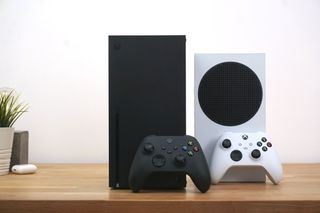
Ultimately, the choice boils down to whether or not you have a 4K TV, but even then, you should still probably opt for an Xbox Series S, given that it can often output games at 1440p as well. The speed improvements for frame rates and SSD loading times on the Xbox Series X|S consoles are too good to ignore, coupled with the fact the Xbox One X is no longer "current," meaning that it won't get as many optimized games.
If you absolutely need a disc drive, the Xbox One X represents a decent upgrade from an Xbox One S, but in a perfect world, it would be better to save up for a full-blown Xbox Series X in that scenario. If you have enough to pick up an Xbox One X, you're pretty much halfway there already.

Jez Corden is the Executive Editor at Windows Central, focusing primarily on all things Xbox and gaming. Jez is known for breaking exclusive news and analysis as relates to the Microsoft ecosystem while being powered by tea. Follow on Twitter (X) and Threads, and listen to his XB2 Podcast, all about, you guessed it, Xbox!
